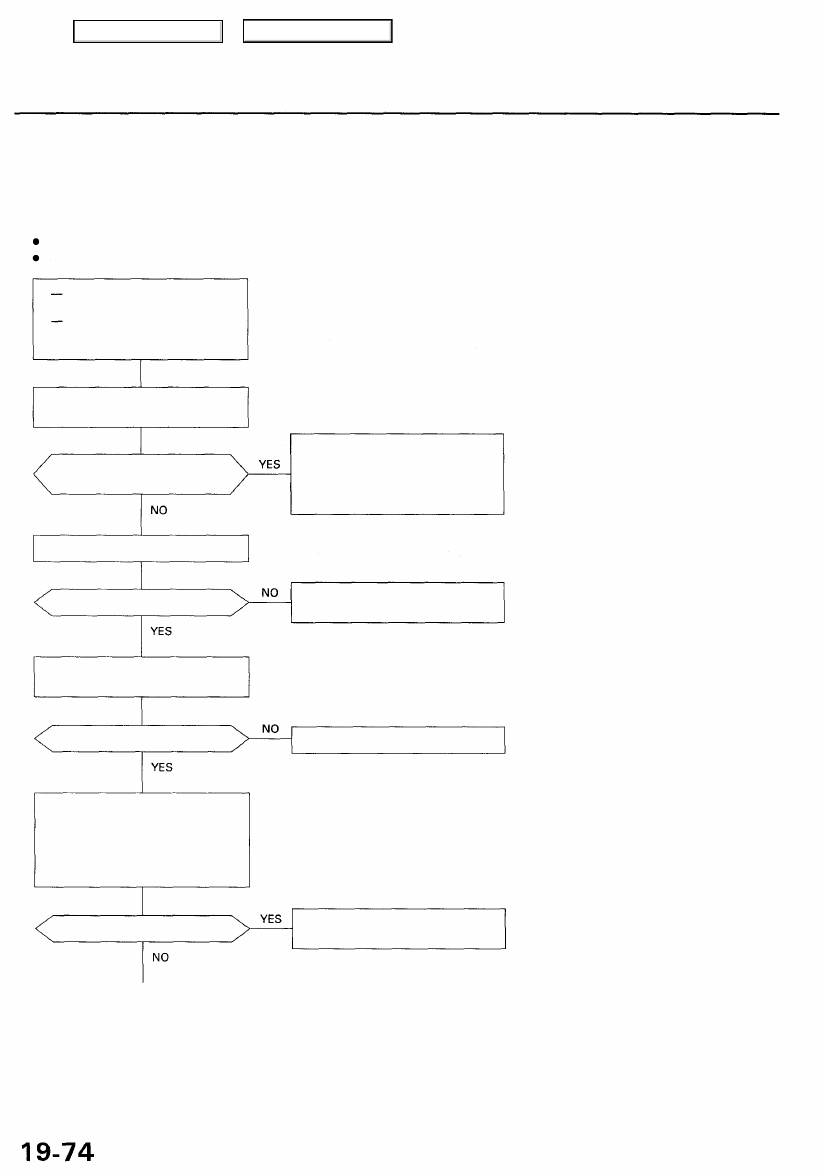Acura RL (1996-2004 year). Manual - part 513

Troubleshooting
DTC 6-4: Rear Fail-safe Relay
The ABS control unit monitors the voltage from the battery for the six solenoids during the initial diagnosis when the fail-
safe relays are OFF. The ABS control unit keeps the ABS indicator light on if it detects the battery voltage at the two rear
solenoid circuits.
Possible causes:
Rear fail-safe relay stuck ON
Short to power in the solenoid drive circuits between the rear fail-safe relay and ABS control unit
Does the ABS indicator light go
off?
The ABS is OK at this time. Check
for damaged wire harness bet-
ween the ABS control unit, sole-
noid and rear fail-safe relay
(intermittent short to power).
Is code 6-4 indicated?
Perform the appropriate trouble-
shooting for the code.
Check the rear fail-safe relay (see
).
Is the relay OK?
Replace the rear fail-safe relay.
Check the modulator wire har-
ness:
1. Disconnect the modulator unit
14P connector.
2. Visually check the modulator
wire harness.
Is there a short to power?
Replace the modulator wire har-
ness (or repair short).
Confirm the DTC that appears first.
Problem verification:
Start the engine.
With engine running, ABS indi-
cator light is ON.
With the SCS service connec-
tor connected (see page
Main Menu
Table of Contents